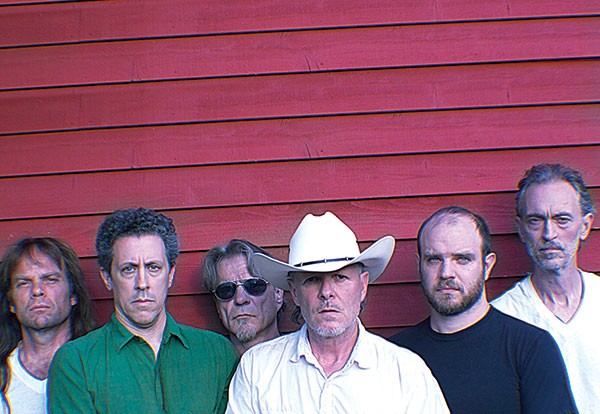When Swans released its 12th studio record, The Seer, last year, I emailed my dad a video of one of its live performances. He replied, "I didn't think I was into it, but at the end, I realized my heart was racing." It's hard to think of a more fitting description of the band: Challenging, raw, often punishingly heavy and sometimes intensely beautiful, Swans' music gets under your skin. Founder and frontman Michael Gira spoke with CP via Skype, using as his avatar a picture of Samuel Beckett — to whom, come to think of it, he bears some resemblance.
I understand you've been developing new songs in your live shows. What direction is that taking?
I suppose they're focused more on grooves. There are large sonic events that happen, of course, but we're trying to really work into a groove machine. I don't mean that in a typical way: It's not like we're white boys trying to play funk or something. It starts out with a simple idea, and through playing repeatedly each night, it starts moving and changing, and by the end of the tour it's unrecognizable from where it began.
Your relationship with your audience seems to have shifted a lot over the years.
I think what we did in the early days ... it seemed to shock people in certain ways. We'd get rabid responses, usually very negative, and most people would walk out, others would be just kind of stunned, and other people would yell and scream things at us. It developed into this pattern of antagonism which kind of perversely fed our desire to keep doing what we were doing. But it's a bad habit to get into.
Sounds pretty punk.
I think it was even more extreme than that. Nowadays, the kind of experience we're creating, it seems to kind of envelop everyone, including us. It becomes a kind of a communal experience of which we're a part. When the music's working, it's almost like we're not playing; it's just happening sort of beyond our control. It's the closest I get to any kind of religious experience.
I've always wondered if you were influenced by any religious music.
Sure. Not anything specific, but the kind of ever-escalating choral aspects of gospel music, for instance, are truly inspirational. Tibetan ritual music, I love that. Music that goes for the back of your skull — you know, just a deep place — interests me. [Our music is] very secular, though.
What is performing like for you?
It's a great, uplifting thing to be inside of. Every set that we play is crafted towards that trajectory, for that kind of vehicular movement of our bodies up into space. [Laughs.] It happens sometimes, and other times it's just a struggle. I think it's a good thing to aspire to, and audiences seem to get a lot from the music, which is encouraging and satisfying.
Does it ever feel like too much?
Often we're utterly and absolutely exhausted from doing the amount of shows we do. You're half-asleep by the time you go onstage, and you're not sure you can do it, but once the music starts, things kick into place. Then at the end, we get in our wheelchairs and go put on our adult diapies and get on the bus.














